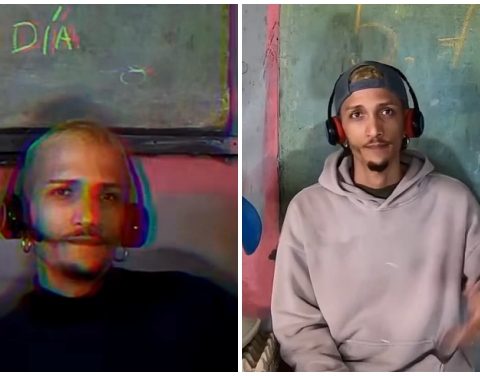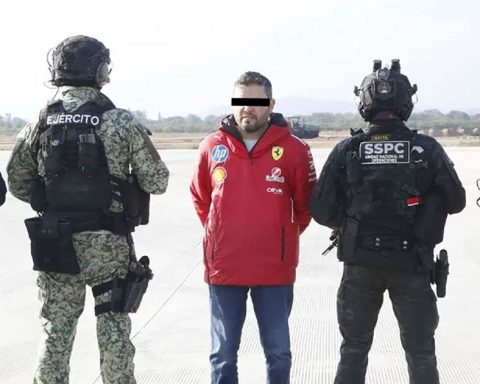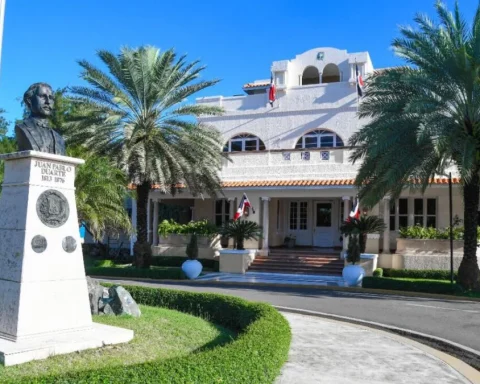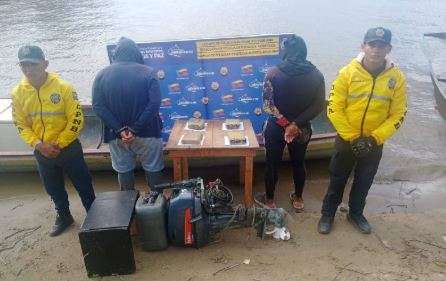-We are a few days away from an event that is very important for Chile. Regardless of whether the Approval or Rejection wins, we have a different country than before the social outbreak and before the Constitutional Convention, what has changed?
-The first thing I would like to say is that we are at an important time to think (Chile) and rethink ourselves. The emergence of new actors, starting in 2019, actually has a long history, old traditions. If we look at women’s movements, feminist movements, they have historical roots in Chile since the beginning of the 20th century, a tradition that is passed on. For its part, the “appearance” of the indigenous and indigenous movements also has a long tradition, since before the republic: we have been present for five centuries. Since the beginning of the 20th century there has been a presence of indigenous movements in Chilean politics, and many people are not aware of that. Another third actor that “appears” are the young people, but the young people have also been there since May 1968, when the emergence of a young subject occurs or the category of “young people” begins to have a meaning.
So, it is not something new, the problem has been that many times the traditional social sciences have not seen and have not listened to these voices. I think that saying “oh, what a surprise! They appeared! They’re there!” is not right, because they were made invisible, but they existed. There are also new trends, which are the seeds of things that we will be able to understand and develop over time, for example, what has to do with ecofeminism and ecological movements. And with the gender perspective, other emerging movements emerge, which also existed in Chile for a long time, which have now taken power. So, the problem is not that these movements or subjects now sit at the table, what happens is that we didn’t see them before.
– Do you notice that there is fear, anger, mistrust in Chilean society?
-Fear, yes. And the discourse of fear focuses on the indigenous. And there is fear because there are ghosts. What are ghosts? Ghosts are all those problems that we haven’t solved, because what happens on a personal level, on a family level, also happens on a societal level. There is a great ghost that causes a lot of fear, which is the ghost of the indigenous. What is the “terror” that appears at this minute? It is precisely to indigenous empowerment. It is a fear of our own miscegenation, because we have not wanted to see how conflictive our miscegenation is. We are very afraid of that part that constitutes us, which is the indigenous part, and we are afraid because we have denied it, we have silenced it, we have been ashamed, we have wanted to leave it far out, and we see indigenous people as those “others”, that exist, that are in the territory, but far away. The question is: why far away? What do we fear? So, I think that there is a knot in Chilean society, very complex, that made the Convention visible, for example, with a Mapuche woman president. This provokes phantasmagorical fears in these imaginary mestizos, in the unconscious it generates a series of reactions. And what is the first reaction? Rejection, that is, in the sense of I don’t want to, I’m not there, I don’t empathize with that part that is mine.
What is happening in this game of identities, in this game of movements? Without a doubt, for this mestizo subject, the fact that the Mapuche world (there are all the other indigenous peoples as well) says “we have a defined identity and you are the others”, that causes us a tremendous mess, which complicates us. Because Of course, while that miscegenation, while that “other” is hidden there and allows me in one way or another to identify myself, to have something to do with that story even though I don’t want it, but when the other tells you “you are the other, you you are a Chilean”, confronts you with this story, and we are in the problem that we are.
-Do you see any difference in what you mention from an elite and non-elite perspective?
-I think it is transversal, otherwise the elites are changing. This fear of the indigenous, this ghost is transversal. It has to do with the history of this country, it has to do with the brutal lack of knowledge about indigenous history or histories, that is, we have settled for the official written history, but not with the history written by the indigenous people themselves, and neither with his memory. One thing is history (documents, sources and perspective) and another thing is the memory that indigenous communities have about their own history. So, what happens? There is a profound ignorance of Mapuche political history (Mapuche ministers and parliamentarians since the beginning of the 20th century). There is no idea of what has been the development of that political history (I am speaking in this case of the Mapuche world, but we could also speak of the profound lack of knowledge that there is regarding what is happening with the Rapanui world, for example), and that Where does it lead us? It leads us to a non-reading of what Chile has been in terms of its colonialism, which was not the same with all the indigenous peoples either, the colonialism that was applied in the Mapuche world was different from the colonialism that was applied in the Rapanui world, etc. So, we have a problem, because we don’t know precisely what scares us, our ghosts, which scare us a lot (worse yet, we make policies to ignore them).
-Have other ghosts emerged apart from the indigenous? And if they have arisen, which ones?
-The great ghost, the great axis, even –I would say– the scapegoat, has been the indigenous. But, of course, there are other ghosts, for example, related to the property issue, there are ghosts related to the political issue. And in this sense, the elites in power are cracking in part over proposals that seem to them to imply a loss of power. When we talk about property we are also talking about heritage and a way of understanding history. I think that, if there is something that has occurred since the social outbreak until now, it has been this question: what are “those heritage values” that are expressed or expressed in monuments that were scratched, attacked, violated, etc.? What’s behind that? When I say “property” and “patrimony” it is precisely because the notion of patrimony is related to property, that is, that which is one’s own, that which is inherited, that which is transmitted. So, these signs of property, in some way, were absolutely questioned and I think that has generated many ghosts and, in that sense, it goes along with what we have talked about. The fear that certain types of images are not “venerated”, are not “cult” and are replaced by other images. For example, in a plaza in La Serena the monument to Francisco de Aguirre is removed from there and, in its place, a Diaguita indigenous woman is placed, who represents the entire revival culture that is happening in that area. So, it leads us to the ghost of what is one’s own?, the ghost of thinking about what we have. For example, that fear that has been given and that it has been said “that people’s houses are going to be taken away, that they are not going to be able to inherit them, that they are not going to be able to inherit pensions”, then, the issue of inheritance, of property, is another great ghost.
-The otherness?
-Of course, because we can build an “us”, but the problem is where the others are. That there are others, that there are differences is not the problem, the problem is the scale of prestige and power in which we place others, that is where the problem lies. And how do we make that valuation system? This has us complicated not only in Chilean society, but also globally.
-And how do you see society today, where they coexist with each other?
-Societies work with metaphors, all times have metaphors, and here there have been two metaphors that we should rethink. One is the metaphor of the “common home”, I discussed it with Pedro Güell the other time. I explained to him why I thought that, instead of “common house”, we should speak of “common table”, which has connotations. And the other metaphor that has been used very strongly in recent times is the “kitchen”, the “kitchen” as something bad, disastrous, which is insulted. So, it seems extremely interesting to me that we get into that, because politics is spoken of as “cooking”, as something that is bad, but what does cooking mean? If we think about it in terms of the fundamental cultural definition, cooking is precisely about building community, without cooking we cannot live. The kitchen has two elements, one that is the kitchen space and the other that refers to the procedures to transform something raw into something edible. So, we must reflect, why is this metaphor used pejoratively, of a space (the kitchen) that by itself is warm, cozy and that is, above all, an act of love? Cooking for others, that others eat, implies (and here I want to go back to everything we have talked about), implies, precisely, heritage in the sense of transmission. Without transmission of culinary knowledge we are illiterate. I think there is now a culinary illiteracy and it is this culinary illiteracy that makes us say and use the kitchen metaphor as something negative.
The kitchen, on the other hand, could be used as a concept that effectively unites us, that calls us to commensalism. What is behind the misuse of this metaphor “kitchen”, in these times, we should review it. I think it is part of the ghosts of Chile, which we were talking about.
-And won’t there be some rebellion against the elite behind, because those who cook are the ones who have the upper hand?
-It reveals fear of something I don’t know how to handle, because if I’m culinary illiterate –which is the phenomenon that’s been happening lately–, I’m going to mistrust cooking, because I’m illiterate, I don’t know how to read, I don’t know how to interpret what It happens in the kitchen. I say that what happens in the kitchen is always something magical and wonderful.
–What do we do with this Chilean society full of fears?
-I believe that it is fundamental that we elaborate it. This is a moment that, instead of taking it as a high point and the whole world is in black and white, we should take it as a moment that allows us to go deeper into ourselves, to go deeper in an open way. An opportunity that I don’t know if we will have at another time, to be able to say: what is it that we are?, what is Chile?, what does it mean today to say Chile? This is an amazing question and I think we should take this opportunity and not get depressed, like many people who are very depressed thinking black things, a sinister future, all wrong. I believe that, on the contrary, we should be optimistic about the possibility of rethinking ourselves and working through our fears.


















